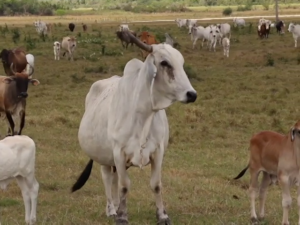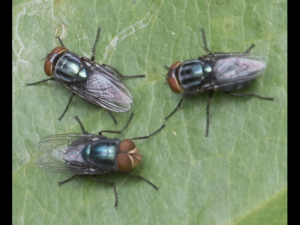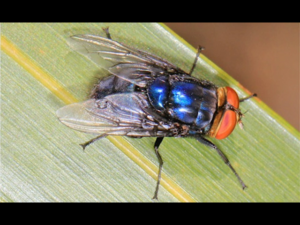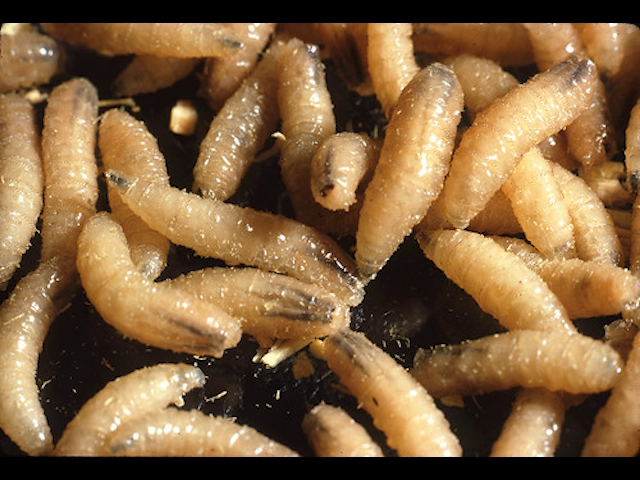Will Costa Rica’s Screwworm Crisis Impact Belize?
Recently, the government of Costa Rica issued a state of emergency after two hundred and three cases of screwworm were detected among various animals such as cattle, horses, pigs, sheep and dogs. Screwworms are a species of parasitic fly that is well known for the way in which its larvae eat the living tissue of warm-blooded animals. The recent breakout originated but has since moved upward to Costa Rica, leaving some to wonder if this will have any effects on Belize’s cattle Industry. We spoke with Minister of Agriculture, Jose Mai for more Information. News Five’s Britney Gordon Reports.
Britney Gordon, Reporting
Belize’s cattle industry has been on the rise for the past few years, increasing a reported 21.4 percent between 2022 and 2023. This generated over seventy million, five hundred thousand dollars in revenue. Belizean cattle is also certified disease-free, but a recent outbreak of screwworm detected in Panama and Costa Rica has raised concerned about the security of the cattle industry. Minister of Agriculture, Jose Mai, briefed us on the situation.

Jose Abelardo Mai
Jose Abelardo Mai, Minister of Agriculture
“Last year, October, I think it was that, cases of Screwworms showed up in Panama. I believe it Screwworms were eradicated from Belize in 1993, I think it was. I was a member of the technical staff that worked then eradicating squirrels from Belize. So we eradicated Screwworms in nineties, ninety-three, I think, nine-two, ninety-three. Thereafter, Guatemala eradicated, Salvador all the way down to Panama. There’s a natural barrier between Panama and Colombia where the flies don’t come over. But for some reason or the other, last year they claim climate change and they claim the migration of people from South America into North, into Central America. They claim that that must have been the reason why we found the screwworm flies now in Panama. From Panama it then spilled over to Costa Rica. Panama right now has more than a thousand cases, I think. Costa Rica has a number of cases. I think they found two hundred and two last week. And they, actually they made a declaration, an emergency declaration, that they’re having Screwworms”.
 Mai further stated that countries that have invested heavily in cattle such as Mexico, the United States, Belize, and Guatemala are especially concerned about the outbreak due to the risk of significant economic damage to the industry.
Mai further stated that countries that have invested heavily in cattle such as Mexico, the United States, Belize, and Guatemala are especially concerned about the outbreak due to the risk of significant economic damage to the industry.
Jose Abelardo Mai
“But every country in Central America through ORISA, which is the Regional Organization for animal and Plant Health, are working together to put a plan to try to contain the spread of this pest. Now, you will probably know that the way how screwworms are controlled is by releasing sterile flies. There is a plant in Panama that produces sterile flies and then these are spread across the areas that have incidences and when they mate with the fertile flies, then the eggs do not hatch, so you break the cycle. But we understand that there’s not enough flies to disperse in the area. Hence we are having increased cases of worms. So it is a concern for all of us. We have stepped up our surveillance programs. We do not allow cattle or any animals to come into the country because they can be infected. And so the movement of animals across the region is slowing down. It’s being watched carefully. So we have stepped up our game to that.”
 We also spoke with Roxanna Alvarez, Chief Veterinary Officer & Technical Director of Animal Health of BAHA, who gave further insight into Belize’s current preventative measures.
We also spoke with Roxanna Alvarez, Chief Veterinary Officer & Technical Director of Animal Health of BAHA, who gave further insight into Belize’s current preventative measures.

Roxanna Alvarez
Roxanna Alvarez, Chief Veterinary Officer & Technical Director of Animal Health, BAHA
“What we’ve been doing is that we’ve been sending regular press releases out to remind the public of animal health emergencies. We’ve been encouraging farmers and producers through their association groups that they need to report cases of masses. This is actually when there is an infestation of a wound by larvae. So we’re asking farmers to repeat report cases of this to their local livestock officers or to our BAHA offices. So, we’ve started that process already. We’ve also been working at training our field officers and our laboratory officers in identification in prevention and treatment and all of this of the screwworm and we’re participating in regional workshops on the response to these emergencies.”
Mai explained that sterile flies are a key part of containing the outbreak and neighboring countries are pooling resources in order to ensure that every nation is equipped.
 Jose Abelardo Mai
Jose Abelardo Mai
“Now, there is a call from Mexico to us, to help in financing the cost of dispersing flies. It’s not a cheap operation to produce the flies and to disperse. Mexico has asked us to I believe we will have to every region, every country in the region will have to add some kind of resource in no specific quantities, but we have to just contribute to controlling the outbreak. If we don’t do so today, it will be even more expensive in the next year or so. So we will step up our game quick and do it very fast.”
Britney Gordon for News Five.







Facebook Comments